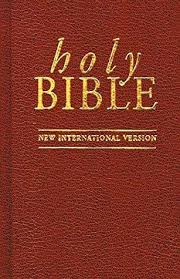Nigeria: A Leader in Trans-Atlantic Slave Trade
View ShopI would greatly appreciate any source documentation of the reply credited to Queen Elizabeth II as to African chiefs getting paid for the slaves taken from Africa. I once wrote that I get a lot of schooling from this forum: this would be another instance of such. Please Mr. (I hope I am right calling you Mr.) Uko Okpok, or anybody who has the required data, forward such to me anyway you choose and as soon as possible. Thanks.
Thank you for sharing the snippet of history.
The question I have is: should the African states
who participated in slavery be responsible for part of
reparation; for instance should the Ibibio, Ibo,
Yoruba Nations etc. be responsible for part of the
reparations or should the specific regions of these
states be responsible since they profited directly
from these immoral trade; that is Aro in Ibo , Efik in
Ibibio ,and Bonny in ijaw etc. etc?
I am asking this question in light of recent referral
of descendants of Africans in Jamaica West Indies by
Queen Elizabeth 11 to African Chiefs, when asked by
these descendants of African slaves for compensation
for free labour by their ancestors. Her contention was
that the African Chiefs got paid.
************
Snip:”Nigeria kept its important position in the
slave trade throughout the great expansion of the
transatlantic trade after the middle of the
seventeenth century. Slightly more slaves came from
the Nigerian coast than from Angola in the
eighteenth century, while in the nineteenth century
perhaps 30 percent of all slaves sent across the
Atlantic came from Nigeria”.
Nigeria was once known as the “Giant of Africa”. It is a historically significant that in his verile years, Nigeria lead, perpetuated and benefited from the sale and import of their own in a most horrific, dehumanizing business known as the Transatlantic Slave Trade. 3.5 million enslaved Africans were shipped from Nigeria to America.
In the year 2005, at least, 1of 5 Africans live in Nigeria. Thousands of others have scattered to other part of the world. In America, Nigerian immigrants have found themselves in cities North, South, East and West along side the descendants of the survivors of the African Slave Trade, African Americans. A great many Nigerians are becoming permanent residents with no intentions of making a life in Nigeria again.
Due to the blood, sweat and tears of African American freedom fighters, Black people are able to participate in the political and economics of the United States. Prior to the 1960’s, the rights to vote, live in decent housing, own businesses and be educated were no rights at all. It is upon the backs of free Black slave labor, civil rights activists and blacknationalist that we all enjoy whatever opportunities and liberties there are in America. Crucial to the laying of a foundation of understanding and communication between the relationships of Africans and African American is to engage the discussion of slavery, some believe. Acknowlegement, Accountability, Acceptance and Closure will aid the efforts of people of African descent to move forward together.
Calling all to leave youregos at the door, bring your open mind and let’s talk: Yoruba, Igbo, Ibibio, Ijaw, and others, people of African descent from within and without the Continent, scholars, historians, young and old, male and female.
reference.allrefer.com/country-guide-study/nigeria/nigeria19.html
A desire for glory and profit from trade, missionary zeal, and considerations of global strategy brought Portuguese navigators to the West African coast in the late fifteenth century. Locked in a seemingly interminable crusading war with Muslim Morocco, the Portuguese conceived of a plan whereby maritime expansion might bypass the Islamic world and open new markets that would result in commercial gain. They hoped to tap the fabled Saharan gold trade, establish a sea route around Africa to India, and link up with the mysterious Christian kingdom of Prester John. The Portuguese achieved all these goals. They obtained access to the gold trade by trading along the Gulf of Guinea, establishing a base at Elmina (“the mine”) on the Gold Coast (Ghana), and they made their way into the Indian Ocean, militarily securing a monopoly of the spice trade. Even the Christian kingdom turned out to be real; it was Ethiopia, although Portuguese adventures there turned sour very quickly. Portugal’s lasting legacy for Nigeria, however, was its initiation of the transatlantic slave trade. By 1471 Portuguese ships had reconnoitered the West African coast south as far as the Niger Delta, although they did not know that it was the delta, and in 1481 emissaries from the king of Portugal visited the court of the oba of Benin. For a time, Portugal and Benin maintained close relations. Portuguese soldiers aided Benin in its wars; Portuguese even came to be spoken at the oba’s court. Gwatto, the port of Benin, became the depot to handle the peppers, ivory, and increasing numbers of slaves offered by the oba in exchange for coral beads; textile imports from India; European-manufactured articles, including tools and weapons; and manillas (brass and bronze bracelets that were used as currency and also were melted down for objets d’art). Portugal also may have been the first European power to import cowrie shells, which were the currency of the far interior. Benin profited from its close ties with the Portuguese and exploited the firearms bought from them to tighten its hold on the lower Niger area. Two factors checked the spread of Portuguese influence and the continued expansion of Benin, however. First, Portugal stopped buying pepper because of the availability of other spices in the Indian Ocean region. Second, Benin placed an embargo on the export of slaves, thereby isolating itself from the growth of what was to become the major export from the Nigerian coast for 300 years. Benin continued to capture slaves and to employ them in its domestic economy, but the Edo state remained unique among Nigerian polities in refusing to participate in the transatlantic trade. In the long run, Benin remained relatively isolated from the major changes along the Nigerian coast. The Portuguese initially bought slaves for resale on the Gold Coast, where slaves were traded for gold. For this reason, the southwestern coast of Nigeria and neighboring parts of the present-day Republic of
Benin (not to be confused with the kingdom of Benin) became known as the “slave coast.” When the African coast began to supply slaves to the Americas in the last third of the sixteenth century, the Portuguese continued to look to the Bight of Benin as one of its sources of supply. By then they were concentrating activities on the Angolan coast, which supplied roughly 40 percent of all slaves shipped to the Americas throughout the duration of the transatlantic trade, but they always maintained a presence on the Nigerian coast. The Portuguese monopoly on West African trade was broken at the end of the sixteenth century, when Portugal’s influence was challenged by the rising naval power of the Netherlands. The Dutch took over Portuguese trading stations on the coast that were the source of slaves for the Americas. French and
English competition later undermined the Dutch position. Although slave ports from Lagos to Calabar would see the flags of many other European maritime countries (including Denmark, Sweden, and Brandenburg) and the North American colonies, Britain became the dominant slaving power in the eighteenth century. Its ships handled two-fifths of the transatlantic traffic during the century. The Portuguese and French were responsible for another two-fifths. Nigeria kept its important position in the slave trade throughout the great expansion of the transatlantic trade after the middle of the seventeenth century. Slightly more slaves came from the Nigerian coast than from Angola in the eighteenth century, while in the nineteenth century perhaps 30 percent of all slaves sent across the Atlantic came from Nigeria. Over the period of the whole trade, more than 3.5 million slaves were shipped from Nigeria to the Americas. Most of these slaves were Igbo and Yoruba, with significant concentrations of Hausa, Ibibio, and other ethnic groups. In the eighteenth century, two polities–Oyo and the Aro confederacy–were responsible for most of the slaves exported from Nigeria. The Aro confederacy continued to export slaves through the 1830s, but most slaves in the nineteenth century were a product of the Yoruba civil wars that followed the collapse of Oyo in the 1820s. The expansion of Oyo after the middle of the sixteenth century was closely associated with the growth of slave exports across the Atlantic. Oyo’s cavalry pushed southward along a natural break in the forests (known as the Benin Gap, i.e., the opening in the forest where the savanna stretched to the Bight of Benin), and thereby gained access to the coastal ports.
Oyo experienced a series of power struggles and constitutional crises in the eighteenth century that directly related to its success as a major slave exporter. The powerful Oyo Mesi, the council of warlords that checked the king, forced a number of kings to commit suicide. In 1754 the head of the Oyo Mesi, basorun Gaha, seized power, retaining a series of kings as puppets. The rule of this military oligarchy was overcome in 1789, when King Abiodun successfully staged a countercoup and forced the suicide of Gaha. Abiodun and his successors maintained the supremacy of the monarchy until the second decade of the nineteenth century, primarily because of the reliance of the king on a cavalry force that was independent of the Oyo Mesi. This force was recruited largely from Muslim slaves, especially Hausa, from farther north. The other major slave-exporting state was a loose confederation under the leadership of the Aro, an Igbo clan of mixed Igbo and Ibibio origins, whose home was on the escarpment between the central Igbo districts and the Cross River. Beginning in the late
seventeenth century, the Aro built a complex network of alliances and treaties with many of the Igbo clans.
Nigeria was once known as the “Giant of Africa”. It is a historically significant that in his verile years, Nigeria lead, perpetuated and benefited from the sale and import of their own in a most horrific, dehumanizing business known as the Transatlantic Slave Trade. 3.5 million enslaved Africans were shipped from Nigeria to America.
In the year 2005, at least, 1of 5 Africans live in Nigeria. Thousands of others have scattered to other part of the world. In America, Nigerian immigrants have found themselves in cities North, South, East and West along side the descendants of the survivors of the African Slave Trade, African Americans. A great many Nigerians are becoming permanent residents with no intentions of making a life in Nigeria again.
Due to the blood, sweat and tears of African American freedom fighters, Black people are able to participate in the political and economics of the United States. Prior to the 1960’s, the rights to vote, live in decent housing, own businesses and be educated were no rights at all. It is upon the backs of free Black slave labor, civil rights activists and blacknationalist that we all enjoy whatever opportunities and liberties there are in America. Crucial to the laying of a foundation of understanding and communication between the relationships of Africans and African American is to engage the discussion of slavery, some believe. Acknowlegement, Accountability, Acceptance and Closure will aid the efforts of people of African descent to move forward together.
Calling all to leave youregos at the door, bring your open mind and let’s talk: Yoruba, Igbo, Ibibio, Ijaw, and others, people of African descent from within and without the Continent, scholars, historians, young and old, male and female.
reference.allrefer.com/country-guide-study/nigeria/nigeria19.html
A desire for glory and profit from trade, missionary zeal, and considerations of global strategy brought Portuguese navigators to the West African coast in the late fifteenth century. Locked in a seemingly interminable crusading war with Muslim Morocco, the Portuguese conceived of a plan whereby maritime expansion might bypass the Islamic world and open new markets that would result in commercial gain. They hoped to tap the fabled Saharan gold trade, establish a sea route around Africa to India, and link up with the mysterious Christian kingdom of Prester John. The Portuguese achieved all these goals. They obtained access to the gold trade by trading along the Gulf of Guinea, establishing a base at Elmina (“the mine”) on the Gold Coast (Ghana), and they made their way into the Indian Ocean, militarily securing a monopoly of the spice trade. Even the Christian kingdom turned out to be real; it was Ethiopia, although Portuguese adventures there turned sour very quickly. Portugal’s lasting legacy for Nigeria, however, was its initiation of the transatlantic slave trade. By 1471 Portuguese ships had reconnoitered the West African coast south as far as the Niger Delta, although they did not know that it was the delta, and in 1481 emissaries from the king of Portugal visited the court of the oba of Benin. For a time, Portugal and Benin maintained close relations. Portuguese soldiers aided Benin in its wars; Portuguese even came to be spoken at the oba’s court. Gwatto, the port of Benin, became the depot to handle the peppers, ivory, and increasing numbers of slaves offered by the oba in exchange for coral beads; textile imports from India; European-manufactured articles, including tools and weapons; and manillas (brass and bronze bracelets that were used as currency and also were melted down for objets d’art). Portugal also may have been the first European power to import cowrie shells, which were the currency of the far interior. Benin profited from its close ties with the Portuguese and exploited the firearms bought from them to tighten its hold on the lower Niger area. Two factors checked the spread of Portuguese influence and the continued expansion of Benin, however. First, Portugal stopped buying pepper because of the availability of other spices in the Indian Ocean region. Second, Benin placed an embargo on the export of slaves, thereby isolating itself from the growth of what was to become the major export from the Nigerian coast for 300 years. Benin continued to capture slaves and to employ them in its domestic economy, but the Edo state remained unique among Nigerian polities in refusing to participate in the transatlantic trade. In the long run, Benin remained relatively isolated from the major changes along the Nigerian coast. The Portuguese initially bought slaves for resale on the Gold Coast, where slaves were traded for gold. For this reason, the southwestern coast of Nigeria and neighboring parts of the present-day Republic of
Benin (not to be confused with the kingdom of Benin) became known as the “slave coast.” When the African coast began to supply slaves to the Americas in the last third of the sixteenth century, the Portuguese continued to look to the Bight of Benin as one of its sources of supply. By then they were concentrating activities on the Angolan coast, which supplied roughly 40 percent of all slaves shipped to the Americas throughout the duration of the transatlantic trade, but they always maintained a presence on the Nigerian coast. The Portuguese monopoly on West African trade was broken at the end of the sixteenth century, when Portugal’s influence was challenged by the rising naval power of the Netherlands. The Dutch took over Portuguese trading stations on the coast that were the source of slaves for the Americas. French and
English competition later undermined the Dutch position. Although slave ports from Lagos to Calabar would see the flags of many other European maritime countries (including Denmark, Sweden, and Brandenburg) and the North American colonies, Britain became the dominant slaving power in the eighteenth century. Its ships handled two-fifths of the transatlantic traffic during the century. The Portuguese and French were responsible for another two-fifths. Nigeria kept its important position in the slave trade throughout the great expansion of the transatlantic trade after the middle of the seventeenth century. Slightly more slaves came from the Nigerian coast than from Angola in the eighteenth century, while in the nineteenth century perhaps 30 percent of all slaves sent across the Atlantic came from Nigeria. Over the period of the whole trade, more than 3.5 million slaves were shipped from Nigeria to the Americas. Most of these slaves were Igbo and Yoruba, with significant concentrations of Hausa, Ibibio, and other ethnic groups. In the eighteenth century, two polities–Oyo and the Aro confederacy–were responsible for most of the slaves exported from Nigeria. The Aro confederacy continued to export slaves through the 1830s, but most slaves in the nineteenth century were a product of the Yoruba civil wars that followed the collapse of Oyo in the 1820s. The expansion of Oyo after the middle of the sixteenth century was closely associated with the growth of slave exports across the Atlantic. Oyo’s cavalry pushed southward along a natural break in the forests (known as the Benin Gap, i.e., the opening in the forest where the savanna stretched to the Bight of Benin), and thereby gained access to the coastal ports.
Oyo experienced a series of power struggles and constitutional crises in the eighteenth century that directly related to its success as a major slave exporter. The powerful Oyo Mesi, the council of warlords that checked the king, forced a number of kings to commit suicide. In 1754 the head of the Oyo Mesi, basorun Gaha, seized power, retaining a series of kings as puppets. The rule of this military oligarchy was overcome in 1789, when King Abiodun successfully staged a countercoup and forced the suicide of Gaha. Abiodun and his successors maintained the supremacy of the monarchy until the second decade of the nineteenth century, primarily because of the reliance of the king on a cavalry force that was independent of the Oyo Mesi. This force was recruited largely from Muslim slaves, especially Hausa, from farther north. The other major slave-exporting state was a loose confederation under the leadership of the Aro, an Igbo clan of mixed Igbo and Ibibio origins, whose home was on the escarpment between the central Igbo districts and the Cross River. Beginning in the late
seventeenth century, the Aro built a complex network of alliances and treaties with many of the Igbo clans.








